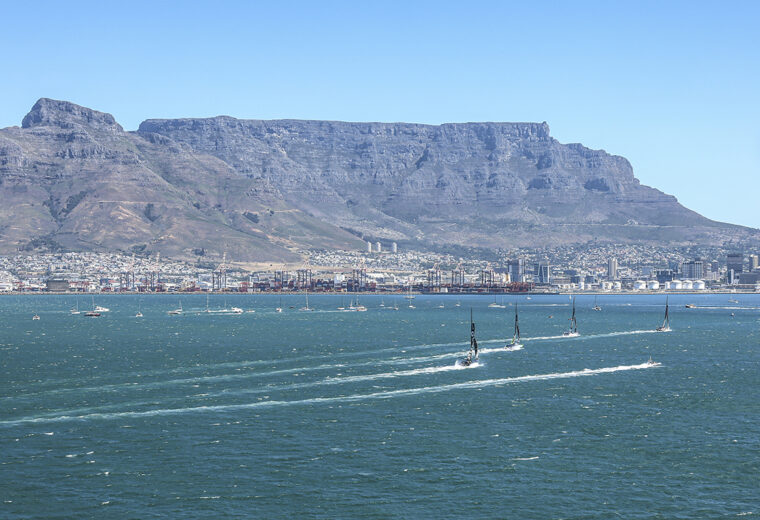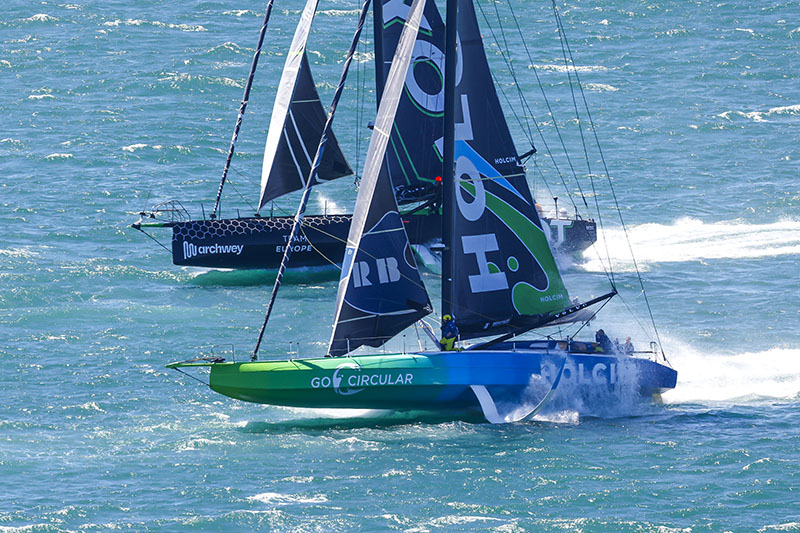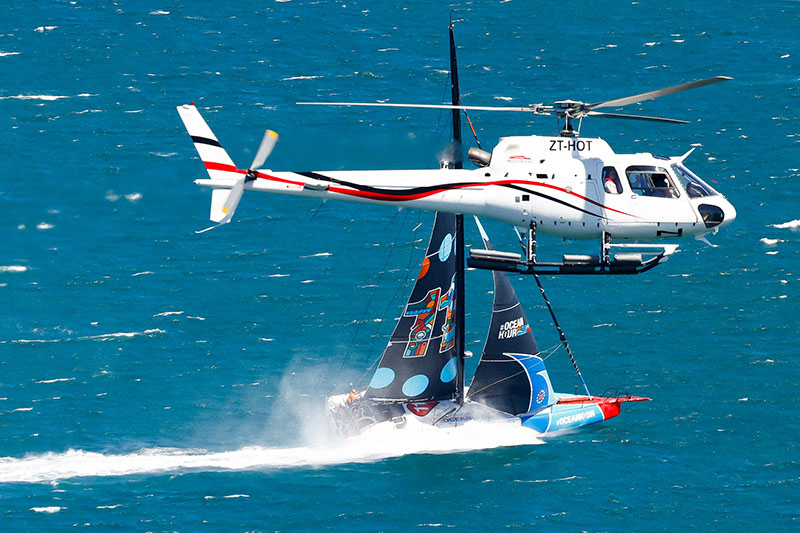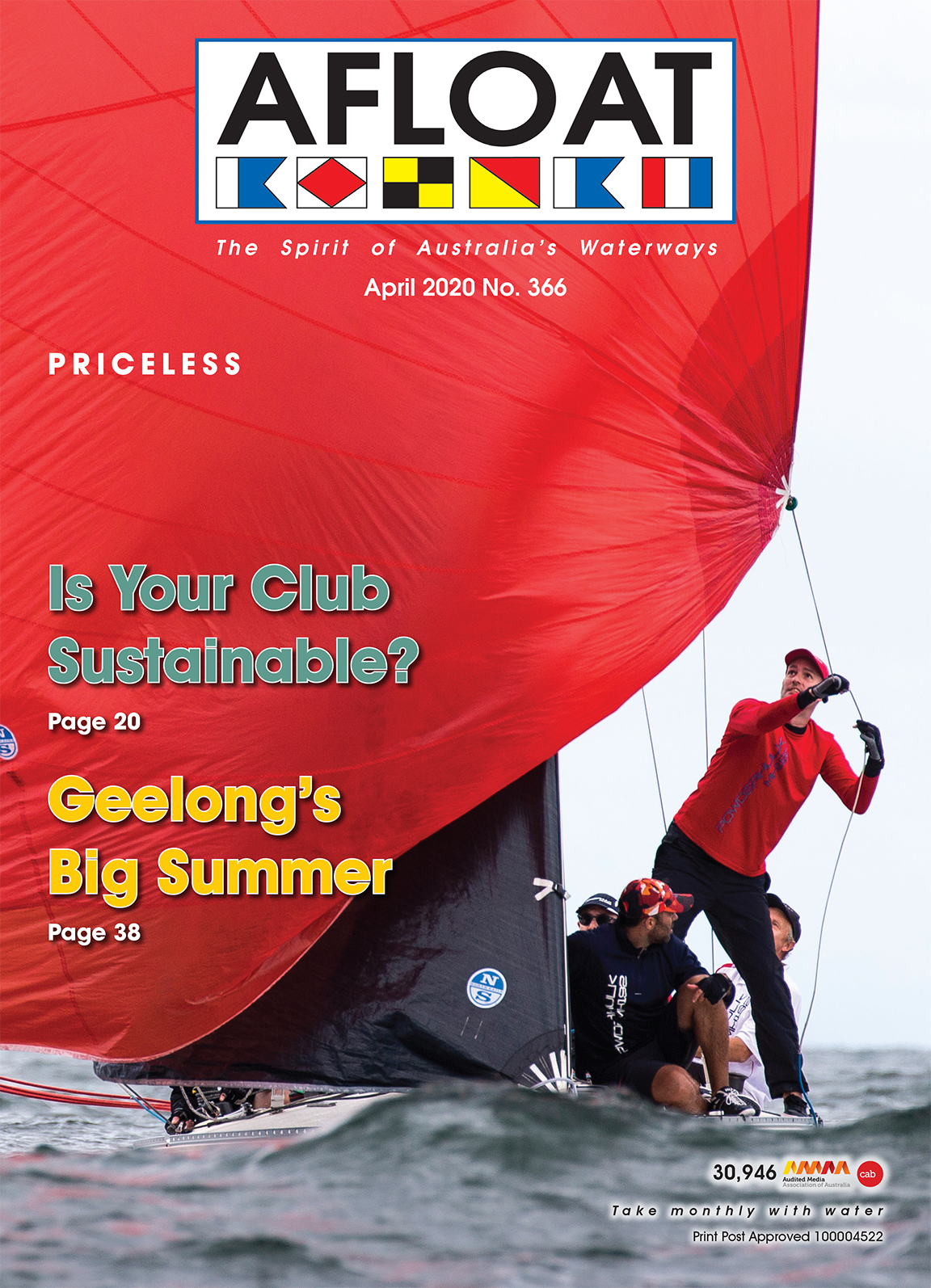The Ocean Race 2023 – Wild start to Leg 3 from Cape Town


It was an extraordinary ‘stop-go’ type of start to Leg 3 of The Ocean Race in Table Bay as the five-boat IMOCA fleet set out on their 12,750 nautical mile adventure towards Itajaí in Brazil.
The race started with two and a half laps of an inshore course to give the crowds lining the Cape Town shore an opportunity to marvel at these hydrofoiling boats before they headed out into the big blue yonder of the Southern Ocean.
A pod of three whales sighted in the original starting area meant the race committee had to make a late change to setting up the race course. With the start line now impacted by the wind shadow of Table Mountain, there was very little wind for the fleet as the seconds counted down to start time.
The skippers must have been wondering why they had all put in two reefs to reduce mainsail area. As the start gun fired, the closest boat to the start was Biotherm. The other four boats were stranded, just over a hundred metres away.

It wasn’t long before Paul Meilhat’s team found 25 knots of wind gusting around the edge of Table Mountain and his Biotherm team shot away into an impressive lead as the rest of the fleet drifted across the start line well after the start had opened.
Biotherm continued to stretch away to what was almost a 600 metre advantage over the rest of the fleet, who eventually hooked into the 25-knot wind and accelerated up to speeds of 30 knots or more.
Team Malizia had crossed the start line in second, followed by GUYOT environnement – Team Europe, with 11th Hour Racing Team narrowly leading Team Holcim-PRB over the start line.
However, as Biotherm completed the first lap of the course, Meilhat saw his boatspeed drop from 20-plus knots down to less than 2 knots as the shadow of Table Mountain reasserted its influence. The whole fleet compressed and Biotherm’s seemingly unassailable lead vanished into thin air.
Team Malizia was first to rediscover the breeze for the start of the second inshore lap, closely followed by 11th Hour Racing Team. Meanwhile Biotherm dropped from first to last as Meilhat’s team were overtaken in the light airs patch by Holcim-PRB and GUYOT environnement – Team Europe.
Once the fleet was back into the breeze, it was another gusty, edge-of-the-seat downwind ride to the bottom of the course, the boats just maintaining control in the strong, blustery conditions. At some moments, two reefs didn’t look like enough with the boats nearly overpowered.

Biotherm then had a problem and it was clear the team was struggling to control its sails. A radio call to the Race Committee saw the team suspend racing to return to port to make repairs.
“We broke the strop on one end of the mainsheet,” said Paul Meilhat at the dock. “Then the mainsheet went too far on the gybe and pulled off the end of the track and we lost all the bearings in the system. So we needed to come in to make this repair and replacement. We shouldn’t lose a lot of time if we do this now. It’s not a big issue, but we need to fix it.”
Then it was 11th Hour Racing Team who were the next to suspend racing with damage to a batten. But the American team elected to stay out at sea to make repairs and serve the minimum two-hour period.
“We have broken two wing tips on the mainsail,” said team CEO Mark Towill. “We actually have two spares on board, so we could make the repair, but that would leave us with no spares for the Southern Ocean. So we’ll get the spares on board to be prepared for the long leg… This is the prudent thing to do.”
Biotherm can resume racing at 1505 UTC, 11th Hour Racing Team at 1507 UTC.
Meanwhile, out at sea, Team Malizia was the first to find the wind around the headlands off Cape Town and started to make their way on Leg 3, along with Team Holcim-PRB and GUYOT environnement – Team Europe.
The forecast is for winds in the 25-30 knot range with 2-3 metre swells. Leg 3 is proving to be a challenge in the very first hours.
Follow the racing at www.theoceanrace.com

